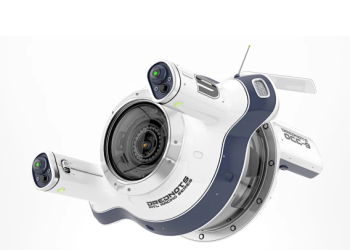Virtual reality (VR) technology has emerged as a transformative force in the realm of digital experiences, offering users the opportunity to immerse themselves in virtual environments like never before. In this article, we explore the evolution of VR technology, its diverse applications across various industries, and the potential impact it holds for the future of immersive digital experiences.
The Evolution of Virtual Reality
The concept of virtual reality dates back to the mid-20th century, but it wasn’t until recent decades that significant advancements in technology made VR accessible to the masses. From early experiments with stereoscopic displays to the development of sophisticated VR headsets and motion tracking systems, the evolution of VR technology has been marked by continuous innovation and refinement.
Applications of Virtual Reality
Virtual reality finds applications across a wide range of industries, including gaming and entertainment, education and training, healthcare and therapy, and business and marketing. In the gaming sector, VR offers players unprecedented levels of immersion and interactivity, while in education, VR simulations provide hands-on learning experiences in diverse fields such as medicine, engineering, and history.
Challenges and Limitations of Virtual Reality
Despite its potential, virtual reality also faces significant challenges and limitations. Technical constraints such as latency and resolution issues can detract from the immersive experience, while the high cost of VR equipment poses barriers to accessibility for many users. Additionally, concerns related to health and safety, such as motion sickness and eyestrain, must be addressed to ensure widespread adoption of VR technology.
The Future of Immersive Digital Experiences
Looking ahead, virtual reality holds immense potential to redefine the way we engage with digital content and interact with one another. Emerging technologies such as augmented reality (AR) and mixed reality (MR) are poised to further enhance the immersive experience, blurring the lines between the physical and virtual worlds. As VR continues to evolve, it is expected to revolutionize various industries and pave the way for new forms of entertainment, communication, and creativity.
Virtual Reality and Social Interaction
One of the most exciting aspects of virtual reality is its potential to transform social interaction and communication. VR platforms enable users to interact with others in virtual spaces, fostering a sense of presence and connection that transcends geographical boundaries. From virtual meetings and conferences to collaborative gaming experiences, VR has the power to redefine the way we socialize and collaborate in the digital age.
Ethical Considerations in Virtual Reality
As virtual reality becomes increasingly integrated into our daily lives, it is essential to consider the ethical implications of VR technology. Privacy concerns related to data collection and surveillance, ethical dilemmas in VR content creation, and the need to ensure inclusivity and diversity in virtual environments are among the key ethical considerations facing the VR industry.
Virtual Reality and Mental Health
Virtual reality also holds promise as a tool for mental health and well-being. VR-based therapies have shown effectiveness in treating a variety of mental health conditions, including phobias, PTSD, and anxiety disorders. By providing immersive and customizable environments for therapeutic interventions, VR has the potential to revolutionize mental health care and improve outcomes for patients.
The Role of Artificial Intelligence in Virtual Reality
Artificial intelligence (AI) is playing an increasingly important role in enhancing the immersive experience of virtual reality. AI-driven experiences in VR can adapt to user preferences and behaviors, providing personalized and engaging content. However, the integration of AI in virtual environments also raises ethical questions regarding data privacy, algorithmic bias, and the potential for AI to manipulate user experiences.
Accessibility and Inclusivity in Virtual Reality
Ensuring accessibility and inclusivity in virtual reality is essential to maximizing the benefits of the technology for all users. Efforts to address barriers to access for individuals with disabilities, design inclusive VR experiences, and promote diversity in VR content are critical steps towards creating a more equitable and inclusive digital landscape.
The Business of Virtual Reality
The virtual reality industry is experiencing rapid growth, driven by increasing demand for immersive digital experiences and advancements in VR technology. Entrepreneurs and investors are capitalizing on opportunities in areas such as VR gaming, enterprise applications, and immersive storytelling. However, challenges such as market fragmentation, hardware limitations, and regulatory uncertainty pose obstacles to the widespread adoption of VR technology.
Educational Potential of Virtual Reality
Virtual reality has the potential to revolutionize education by providing immersive and interactive learning experiences. VR simulations can transport students to virtual environments that would otherwise be inaccessible, enabling them to explore complex concepts and scenarios in a hands-on manner. From virtual field trips to interactive anatomy lessons, VR holds promise as a powerful tool for enhancing learning outcomes and engaging students in new and exciting ways.
Virtual Reality in the Arts and Creativity
Artists and creators are harnessing the power of virtual reality to push the boundaries of storytelling, immersive art installations, and interactive experiences. VR enables users to explore virtual worlds and interact with digital artworks in ways that were previously unimaginable, blurring the lines between reality and fantasy. Collaborations between artists, technologists, and storytellers are leading to innovative new forms of expression that challenge traditional notions of art and creativity.
Regulatory Frameworks for Virtual Reality
As virtual reality becomes more prevalent in society, there is a growing need for regulatory frameworks to govern its use and ensure consumer protection. Current regulations and guidelines vary widely across different jurisdictions, leaving gaps in areas such as data privacy, content moderation, and safety standards. Moving forward, policymakers must work collaboratively with industry stakeholders to develop comprehensive regulatory frameworks that balance innovation with responsible use of VR technology.
Conclusion
Virtual reality represents a paradigm shift in the way we experience and interact with digital content, offering unprecedented levels of immersion and interactivity. As VR technology continues to evolve, its impact on various aspects of society, from entertainment and education to healthcare and the arts, is expected to grow exponentially. By addressing challenges related to accessibility, ethics, and regulation, we can unlock the full potential of virtual reality to create a more inclusive, engaging, and immersive digital future.

FAQs After The Conclusion
1. What is virtual reality (VR)?
Virtual reality (VR) is a computer-generated simulation of a three-dimensional environment that users can interact with in a realistic and immersive way, typically using a headset and motion tracking technology.
2. How does virtual reality work?
Virtual reality works by creating a sensory-rich environment that immerses users in a virtual world, typically through the use of specialized hardware such as VR headsets and controllers. Sensors track the user’s movements and adjust the virtual environment accordingly, creating the illusion of presence and immersion.
3. What are some applications of virtual reality?
Virtual reality has applications across a wide range of industries, including gaming and entertainment, education and training, healthcare and therapy, and business and marketing. VR technology enables users to explore virtual environments, interact with digital objects, and engage in immersive experiences like never before.
4. What are some challenges facing virtual reality?
Some challenges facing virtual reality include technical constraints such as latency and resolution issues, accessibility and affordability barriers, health and safety concerns, and ethical considerations related to privacy, inclusivity, and content moderation.
5. How is virtual reality being used in education?
Virtual reality is being used in education to provide immersive and interactive learning experiences for students. VR simulations enable students to explore complex concepts and scenarios in a hands-on manner, enhancing engagement, retention, and understanding.
6. What are some potential benefits of virtual reality for mental health?
Virtual reality has the potential to benefit mental health by providing immersive and customizable environments for therapeutic interventions. VR-based therapies have shown effectiveness in treating conditions such as phobias, PTSD, and anxiety disorders, offering new approaches to mental health care and rehabilitation.
7. What role does artificial intelligence play in virtual reality?
Artificial intelligence plays a key role in enhancing the immersive experience of virtual reality by providing personalized and engaging content. AI-driven experiences in VR can adapt to user preferences and behaviors, creating more dynamic and interactive virtual environments.
8. How can virtual reality be made more accessible and inclusive?
Ensuring accessibility and inclusivity in virtual reality requires efforts to address barriers to access for individuals with disabilities, design inclusive VR experiences, and promote diversity in VR content. By prioritizing accessibility and inclusivity, we can create more equitable and welcoming virtual environments for all users.















